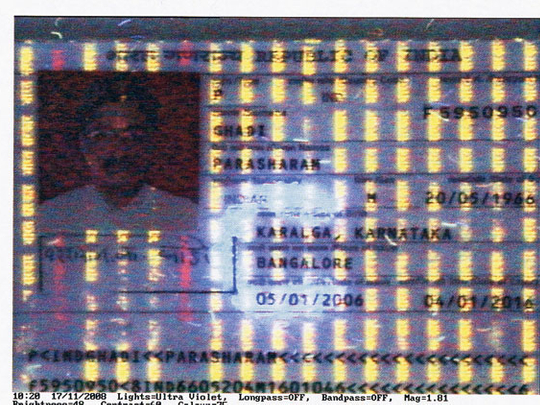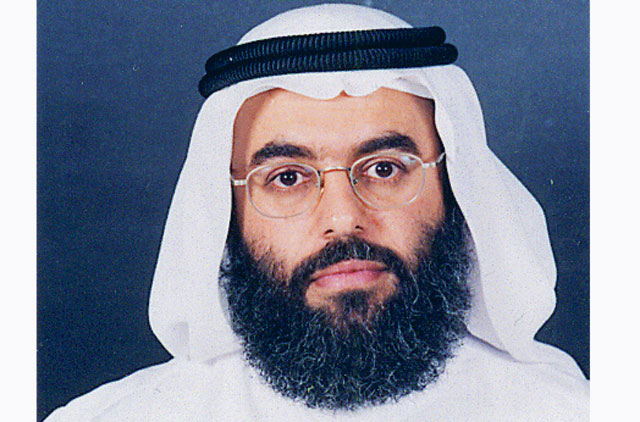
Dubai: More than 34 per cent of cases examined by the questioned documents section at the general department of forensic sciences of Dubai Police were related to passport forgery, which is the highest percentage of such crime reported during 2009.
Forged passports are counted among the most serious security threats globally. Most recently, 27 suspects holding forged passports of western countries were involved in the high-profile assassination of senior Hamas commander Mahmoud Al Mabhouh in a Dubai hotel in January.
Although the section doesn't normally come across cases of forged passports that are related to serious organised crimes, the methods used to forge passports in a few of the cases had been a revelation, forensic expert Aqil Al Najjar, head of the section, told Gulf News. The section is also part of a federal committee to establish security features for electronic UAE passports.
Forgery does not necessarily mean possessing a passport that is not authentic. Partial forgery, which is the most common method, involves altering personal data, changing the identification photo, or impersonating the holder of a genuine passport. Complete forgery involves issuing a passport from an unofficial source such as leaking original blank passports.
In most cases, detecting a forged passport is relatively "easy" but in a few cases it can be challenging, especially for an untrained or unqualified person, Al Najjar said.
According to him, his section took up 1,837 cases in all in 2009 after examining 194,357 documents (i.e. cheques, official documents, currency, passports, visas, credit cards, driving licences and commercial products). In 2008, there were 1,790 cases originating from police stations in Dubai and some from the northern emirates and public sector organisations.
Of the 1,837 cases handled, 628 were referred for passport forgery inspection — the passports were from 77 nationalities.
Among the most blatant cases were some instances of almost complete forgery, such as the removal of an entire page. In such cases, pages of the original document had been replaced with a new one boasting similar security features to a genuine passport.
Of the 628 cases of forgery reported, 249 pertained to genuine passports — 51 belonged to their rightful owners and 198 were entirely genuine, but were not in the hands of the holder (impersonation).
Approximately 188 cases involving 256 Indian passports were inspected by the section, Al Najjar said.
"Although the security features of these passports have been highly developed, we still come across many cases of almost complete forgery where an entire page is removed and replaced with one that has similar security features," he said.
Another "fascinating case" was the case of a forged Korean passport that was almost a replica of a genuine passport, including the security features. "In such cases, I believe the individuals are operating on a higher sophisticated level, which could mean they are part of organised gangs," he said.
Passport forgery has been linked to many issues in Dubai, such as car rental theft, murder, illegal working and impersonation.
How it adds up
1) Bangladesh: 590
2) India: 256
3) Pakistan: 92
4) Nigeria: 74
5) Cameroon: 38
6) Afghanistan: 37
7) Malaysia: 36
8) Sri Lanka: 23
9) Iran: 19
10) Uzbekistan: 17
11) UK and Turkey: 15 each
12) Iraq: 14
13) Congo: 11
14) Holland and Korea: 9 each
15)Sweden, Australia, and France: Each had 8 passports inspected
Cases inspected
|
Cases
|
2009
|
2008
|
|
Passports
|
628
|
668
|
|
Currency:
|
216
|
194
|
|
Handwriting analysis:
|
592
|
567
|
|
Commercial products:
|
151
|
127
|
|
Tourism cheques:
|
16
|
4
|
|
Credit cards:
|
59
|
31
|
|
Driving licenses:
|
14
|
16
|
|
Visas:
|
8
|
13
|
|
Overall:
|
1,837
|
1,790
|
Do you keep your passport safely? Are you concerned about identity theft?













